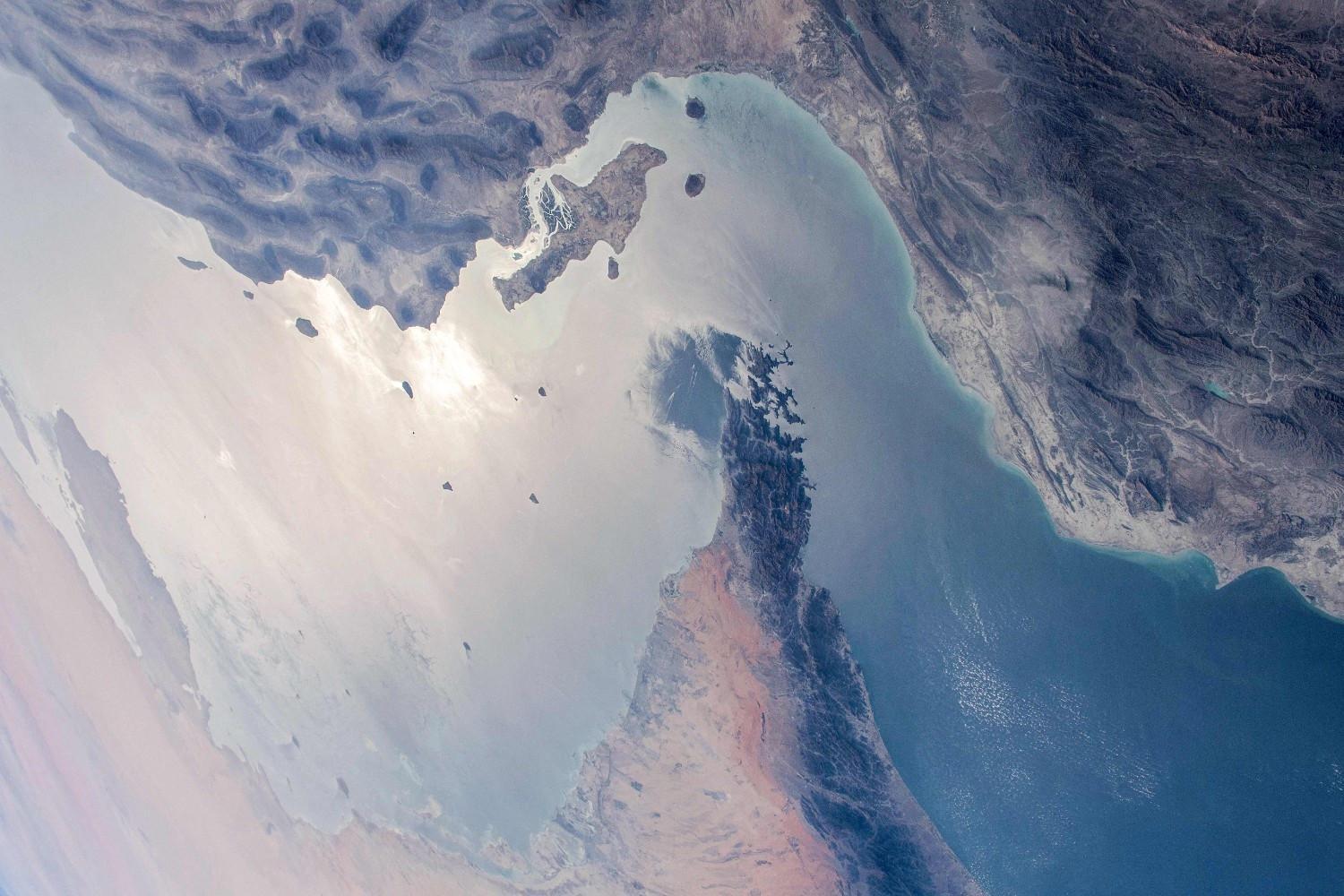
(FILES) This handout photo released by NASA and taken on April 8, 2021 by the Expedition 64 crew from the International Space Station shows a view of the Strait of Hormuz in the Gulf separating Iran (top) from the United Arab Emirates and Oman (bottom).(NASA/AFP)
The EU's top diplomat warned Monday it would be "extremely dangerous" should Iran shut down the crucial Strait of Hormuz trading route over U.S. strikes on its nuclear sites.
"Any Iranian closure of the Strait of Hormuz would be extremely dangerous," Kaja Kallas wrote on X, as EU foreign ministers met in Brussels for talks with the Iran-Israel conflict high on the agenda.
U.S. Secretary of State Marco Rubio urged China Sunday to help deter Iran from shutting down the Strait of Hormuz, a crucial trade route, following American strikes.
"I encourage the Chinese government in Beijing to call them about that because they heavily depend on the Strait of Hormuz for their oil," Rubio said on Fox News.
Analysts have said Iran may opt to retaliate to Washington's early Sunday attack by shutting the Strait, a waterway through which one-fifth of global oil output passes.
"If they do that, it will be another terrible mistake. It's economic suicide for them if they do it, and we retain options to deal with that," Rubio added.
"But other countries should be looking at that as well, it would hurt other countries' economies a lot worse than ours. It would be, I think, a massive escalation that would merit a response. Not just by us but from others," he said.
Meanwhile, Iran has threatened bases used by the U.S. military, with an advisor to Iran's supreme leader Ayatollah Ali Khamenei saying they will be considered a "legitimate target for our armed forces."
However, it remains to be seen whether the U.S. strikes will push Tehran to de-escalate the conflict or to widen it further.
China has joined Russia and a chorus of Arab states in condemning the U.S. attacks, saying that they "escalate tensions in the Middle East."
Oil market, investors brace for Iran’s reaction
Oil prices were higher Monday and the U.S. dollar strengthened after the United States struck Iran's nuclear facilities at the weekend.
Analysts suggest that any retaliatory action could trigger further volatility across commodities and currencies.
The price of oil initially jumped more than 2 percent but fell back slightly Monday.
The conflict sent oil prices yo-yoing and rattled other markets.
Iran is a major producer of oil and sits on the narrow Strait of Hormuz, through which much of the world’s crude passes.
Closing off the waterway would be technically difficult to pull off, but it could severely disrupt transit through it.
Iran's Parliament agreed to close the Strait of Hormuz on June 22, waiting for a final decision from the Supreme National Security Council.
Iran may be reluctant to close the waterway because it uses the strait to transport its own crude, mostly to China, and oil is a major revenue source for the regime.
Tom Kloza, chief market analyst at Turner Mason & Co said he expects Iranian leaders to refrain from drastic measures and oil futures to ease back after the initial fears blow over.
Disrupting shipping would be " a scorched earth possibility, a Sherman-burning-Atlanta move,” Kloza said.
The dollar's value rose against other currencies, but analysts questioned to what extent this would hold out.
"If the increase proves to be just a knee-jerk reaction to what is perceived as short-lived U.S. involvement in the Middle East conflict, the dollar's downward path is likely to resume," said Sebastian Boyd, markets live blog strategist at Bloomberg.